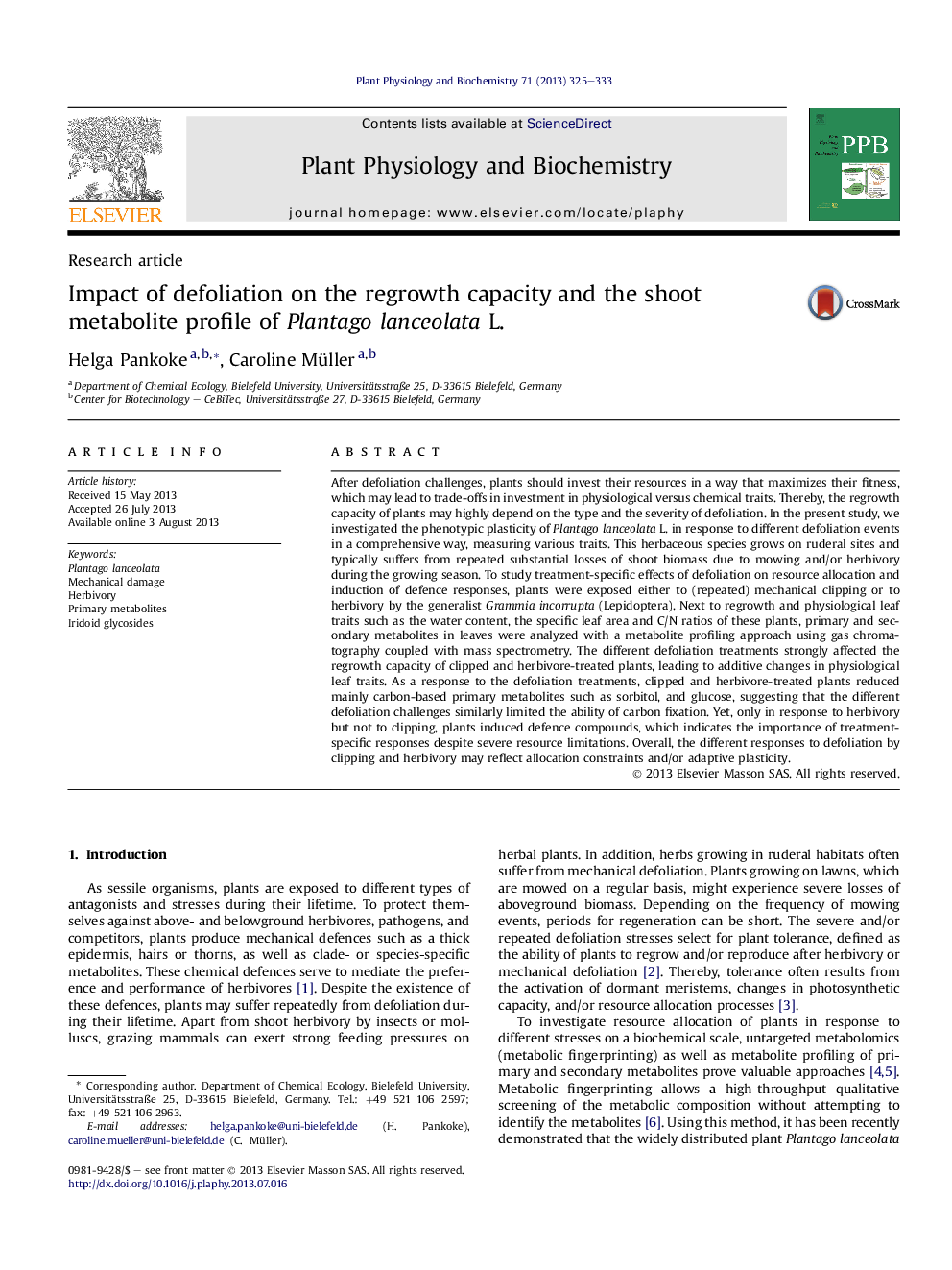| کد مقاله | کد نشریه | سال انتشار | مقاله انگلیسی | نسخه تمام متن |
|---|---|---|---|---|
| 2016326 | 1541950 | 2013 | 9 صفحه PDF | دانلود رایگان |

• Defoliation affected the regrowth capacity of clipped plants.
• We found additive changes of physiological leaf traits in response to defoliation.
• Clipping and herbivory similarly reduced carbon-based primary metabolites.
• Plants induced catalpol only in response to herbivory, but not after clipping.
After defoliation challenges, plants should invest their resources in a way that maximizes their fitness, which may lead to trade-offs in investment in physiological versus chemical traits. Thereby, the regrowth capacity of plants may highly depend on the type and the severity of defoliation. In the present study, we investigated the phenotypic plasticity of Plantago lanceolata L. in response to different defoliation events in a comprehensive way, measuring various traits. This herbaceous species grows on ruderal sites and typically suffers from repeated substantial losses of shoot biomass due to mowing and/or herbivory during the growing season. To study treatment-specific effects of defoliation on resource allocation and induction of defence responses, plants were exposed either to (repeated) mechanical clipping or to herbivory by the generalist Grammia incorrupta (Lepidoptera). Next to regrowth and physiological leaf traits such as the water content, the specific leaf area and C/N ratios of these plants, primary and secondary metabolites in leaves were analyzed with a metabolite profiling approach using gas chromatography coupled with mass spectrometry. The different defoliation treatments strongly affected the regrowth capacity of clipped and herbivore-treated plants, leading to additive changes in physiological leaf traits. As a response to the defoliation treatments, clipped and herbivore-treated plants reduced mainly carbon-based primary metabolites such as sorbitol, and glucose, suggesting that the different defoliation challenges similarly limited the ability of carbon fixation. Yet, only in response to herbivory but not to clipping, plants induced defence compounds, which indicates the importance of treatment-specific responses despite severe resource limitations. Overall, the different responses to defoliation by clipping and herbivory may reflect allocation constraints and/or adaptive plasticity.
Figure optionsDownload as PowerPoint slide
Journal: Plant Physiology and Biochemistry - Volume 71, October 2013, Pages 325–333